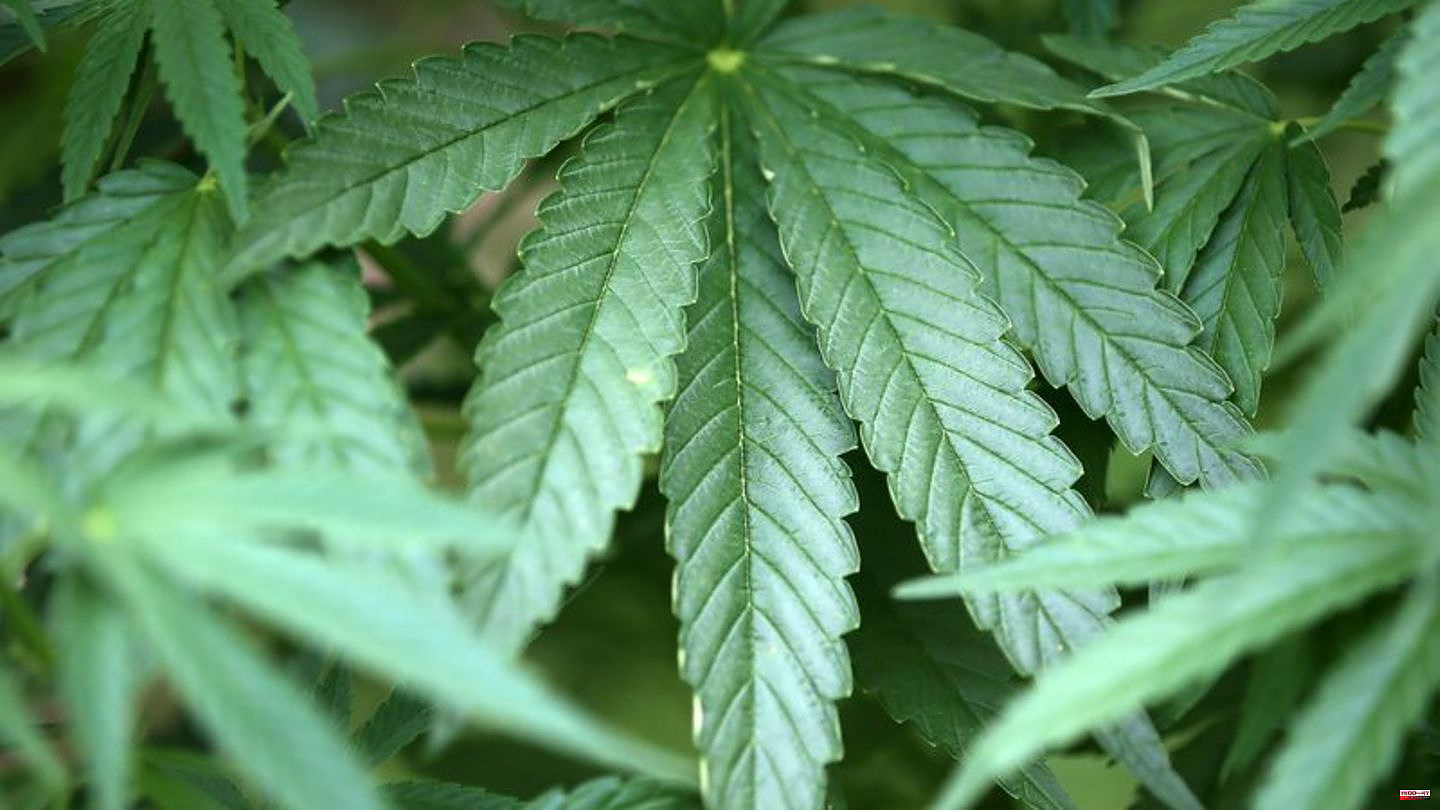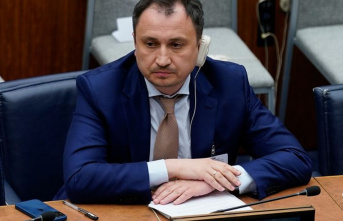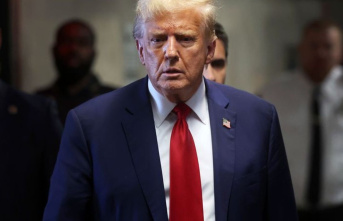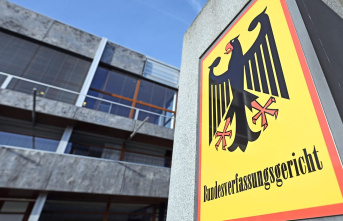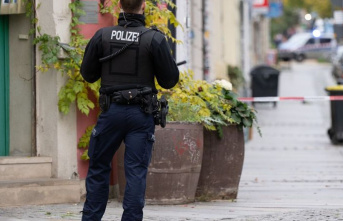A possible cannabis release in Germany is getting closer. The federal government is currently working on a "major solution," said government circles in Berlin on Wednesday. Accordingly, not only the self-cultivation of cannabis should be exempt from punishment, but also the sale and procurement.
Specifically, 20 grams of the hemp plant with a psychoactive effect could be bought legally from the age of 18, the editorial network Germany (RND) reported, citing a key issues paper by the health department. The Union reacted promptly with severe criticism - Chancellor Olaf Scholz (SPD) should stop the plans. The Greens, the Left and the Hemp Association, on the other hand, warned that the law should not be too restrictive.
A spokesman for Health Minister Karl Lauterbach (SPD) emphasized that there is still no key issues paper that has been agreed in the government. However, the departments of health, justice, economy, agriculture, interior affairs and the Federal Foreign Office worked together to implement the coalition agreement. There, the SPD, Greens and FDP had agreed to introduce a "controlled sale of cannabis to adults for recreational purposes in licensed shops". Several expert hearings were organized to prepare extensive regulations for this. Lauterbach had announced key points in the fall and a draft law for the end of the year.
"It's going to be a giant law"
As it was further said in ministry circles on Wednesday, there is still "considerable need for clarification". The aim is to use legalization to reduce the health risks that arise from the black market and uncontrolled cultivation and sale. The protection of children and young people is paramount. "It's going to be a huge law," the health department said.
Difference by age:
According to the RND report, the preliminary key points envisage allowing home cultivation of up to two cannabis plants. The amount of the intoxicating substance THC should not exceed 15 percent. In order to prevent "cannabis-related brain damage", only products with a maximum THC content of 10 percent may be sold to younger people between the ages of 18 and 21. If young people under the age of 18 were caught with cannabis, there should be impunity. However, youth welfare offices should oblige them to take part in prevention courses. For locations of cannabis shops, minimum distances to schools, children's and youth facilities are in view. Despite legalization, it should remain prohibited to advertise cannabis products.
Legal hurdles in Europe:
Above all, the government wants to prevent a failure in Europe, a "Morbus Scheuer", as it was called in Berlin. In the traffic light, the former Transport Minister Andreas Scheuer (CSU) is meant, who had failed under European law with a prestige project of the CSU, a car toll. That's why key points should first be agreed and then passed in the federal cabinet - and only when Brussels and Strasbourg signal the green light should a bill follow, as it was said. "If the examination shows that it is not legal, we will not submit a law," the government said. However, one is confident that it is legal. The background is, among other things, legal requirements according to which the states are obliged to take measures that are necessary to prevent the illegal trade in narcotics. In Germany, cannabis could no longer be legally classified as a narcotic in the future.
According to Lauterbach, around four million adults use cannabis. There is a large black market, organized crime and pollution. "The consumption of cannabis in moderation, well secured, in quality and without drug-related crime is something that has to be accepted and is part of a modern society," emphasized the minister.
Criticism of the plans:
Bavaria's Health Minister Klaus Holetschek (CSU) called on Chancellor Olaf Scholz (SPD) to stop his traffic light coalition's cannabis legalization plans. "This threatens - regardless of the details that have not yet been confirmed - that the risks of this drug are further downplayed." In addition to the risk of developing dependency, the cannabis risks included negative effects on memory as well as on learning and thinking skills".
CSU health politician Stephan Pilsinger told the RND: "If cannabis with a limited THC content has to be produced in Germany, then the price will be significantly higher than the black market price given the difficult climatic conditions in this country (...)." The black market will therefore not dry up.
Warning of restrictive regulation:
Green health politician Kirsten Kappert-Gonther said: "Legalization that improves health and youth protection can only succeed if it is not too restrictive, otherwise consumers will continue to obtain their cannabis from the black market." A THC cap, staggered age limits, and a two-plant limit on self-cultivation could mean that some users would continue to resort to illegal cannabis. EU law on cannabis is rudimentary. "Relying on cultivation in Germany alone in anticipatory obedience can mean that demand cannot be met."
Left-wing politician Ates Gürpinar also warned against overly rigid guidelines. "It's as if only light beer were allowed in Bavaria. 2.5 percent up to the age of 21, then 3.5 percent alcohol." The German Hemp Association also warned against restrictive rules. Spokesman Georg Wurth told the news portal t-online: "We need rules that make it attractive for consumers to go to a store and not to visit the black market."

